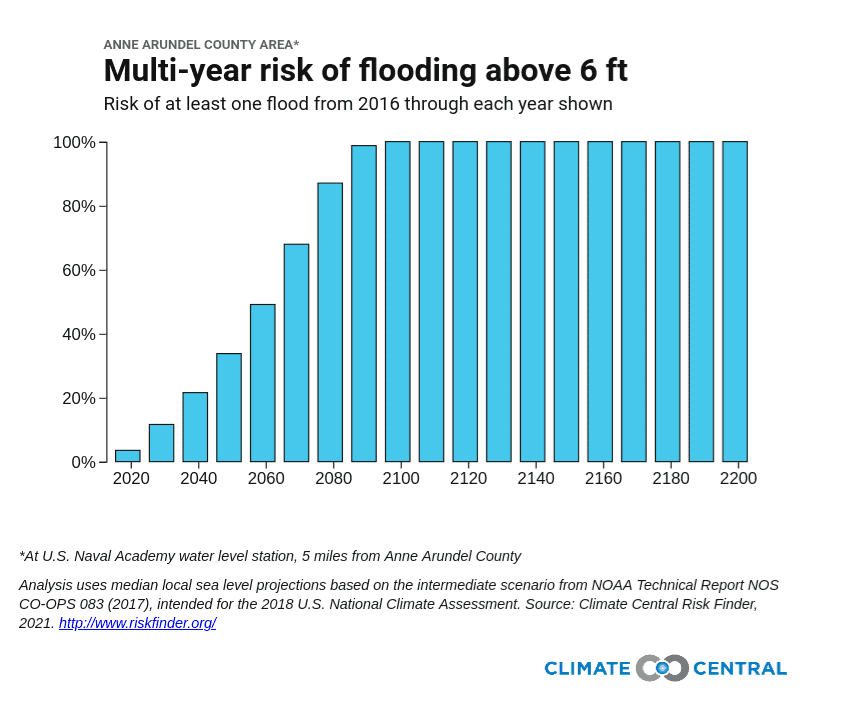Anne Arundel Sues Fossil Fuel Companies

By Brenda Wintrode
Anne Arundel County filed a lawsuit last week against some of the biggest names in the fossil fuel industry, including Exxon, Shell and BP, seeking financial damages from climate change the county says the companies knew about and covered up.
The civil lawsuit filed in Anne Arundel Circuit Court alleges the defendants “conspired in a coordinated campaign to conceal and misrepresent the known dangers of fossil fuels” and knew for the last 50 years their products were introducing carbon dioxide into the earth’s atmosphere.
County Executive Steuart Pittman said in a statement the county aims to protect taxpayers and businesses from the financial costs of climate change. “The damage inflicted by these companies damages our environment, and creates massive costs that shouldn’t be borne on the backs of our residents,” Pittman said.
Rising sea levels, coastal erosion and excessive flooding from intense storms have damaged the shoreline of Anne Arundel County, according to the lawsuit. The county detailed millions of dollars in damages to underground infrastructure, roads, businesses, shorelines and private properties.
“The cascading social economic and other consequences of those myriad other environmental changes—all due to anthropogenic global warming—will increase in Anne Arundel County,” the lawsuit reads.
Baltimore City and the City of Annapolis have filed similar suits.
Local environmental groups side with the county and are closely watching the suits.
The Chesapeake Bay Foundation focuses on restoring the water quality of the bay and works to prevent shoreline erosion. “In Maryland, that’s where we kind of have the one-two punch,” said Maryland’s executive director Josh Kurtz. “Our land is sinking, and at the same time, sea levels are rising.”
Since 1950, Maryland’s sea level has risen 10 inches. In Annapolis, the rate of sea level increase has sped up to one inch every five years, according to the National Oceanic and Atmospheric Administration and SeaLevelRise.org.
A lawsuit win would help jurisdictions adapt and “protect our natural and human communities from those impacts,” he said.
Greater-than-average rainfall in 2018 and 2019 caused freshwater to flood into the Bay, said Kurtz, bringing pollutants, like nitrogen and phosphorus, along with it, he said. Dead zones and algal blooms result, which threaten the brackish ecosystems.
Climate change is “having really detrimental impacts to the communities on the Bay, near the Bay, and that rely on the Bay for the economic values it brings,” said Kurtz. And fossil fuel companies that, he says, knew about the dangers of burning fossil fuels must be held accountable.
Mike Tidwell, executive director of Chesapeake Climate Action Network agreed. “Big Oil has known for decades that burning fossil fuels would cause catastrophic climate damage,” wrote Tidwell. “Instead of changing course, they orchestrated a campaign of deception, made billions in profit and left communities to pay the price.”
